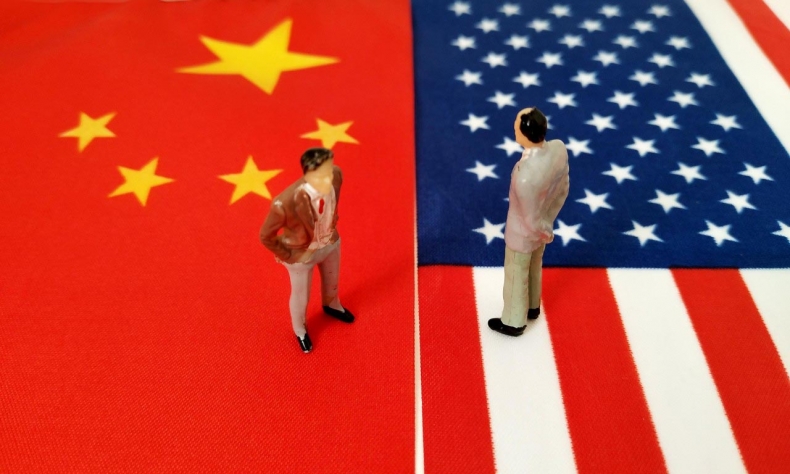
Compromise Is the Foundation
Concessions are a must for a China-U.S. trade deal and the global economy
The fact that we are not preparing for a formal signing ceremony for a new trade deal between China and the U.S. has come as a shock to me, global businesses and most experts who have been tracking this year-plus-long process.
The thinking in capitals, boardrooms and financial markets was that only a major and surprising development could derail the process.
The Donald Trump administration has responded with the one blunt instrument it has depended on from day one: more tariffs, this time from 10 to 25 percent on another $200 billion of Chinese goods. In response, China proposed new tariffs on U.S. goods.
The simple truth is tariffs help no one, no economy and no government. They are simply a tax that kills free trade and business and is borne by the people who can afford it the least, workers and consumers.
The impact of the new tariff is likely to be twofold. Products, whether finished or raw materials and components, will be more expensive for U.S. businesses to import from China and the extra cost will be passed down to consumers. In essence, a new tax will be levied upon consumers that could hurt overall consumption, and thus, economic growth in the U.S.
The tariffs will also damage the manufacturing industry in China. It has been a difficult year for Chinese producers and the pain may now worsen. Most talk about the trade dispute has focused on what the trade war means for products being made in China and imported by the U.S. and the effect it will have on U.S. buyers and Chinese producers.
But if the new tariff regimes go into effect, on both sides a new front will have been opened: the consumer products sector. U.S. companies are doing a booming business in selling their products and brands to Chinese consumers.
The evolution of digital commerce and New Retail has created hundreds of millions of new Chinese consumers, and the likes of Alibaba, JD.com and others are committed to bringing products from the West to the East. As Alibaba’s Executive Vice Chairman Joseph Tsai said in the company’s May 15 earnings release, “China’s commitment to purchase more U.S. products means China will over the next several years become a net importing country. Consumers in China will benefit from the availability of quality imported products from all over the world, including from U.S. farmers, brands and small businesses.”
Tsai also said the trade negotiations will lead to China opening its markets to more foreign businesses to satisfy the growing demands of domestic consumers. “We are not concerned about slowing China exports affecting GDP growth because the Chinese economy is shifting from an export economy to a domestic consumption economy. Job expansion is continuing in China,” he added.
But the U.S. is so focused on the trade deficit that it is missing the bigger, longer-term picture of the deficit possibly being reversed through free trade.
The new tariffs will further disrupt the global economy as uncertainty will continue on everyone’s mind which markets and businesses detest.
A trade imbalance is not the measure of health of trade between the U.S. and China or anywhere else, for that matter. Fair trade, free trade and mutually beneficial symbiosis in trade are what counts.

China buying staples like soybeans and oil and gas will not impact the overall health of the U.S.-China trade relationship in the long term. They are good for the short term, but in the long term, the two powers must engage in a constant process of managing the trade relationship and offer the other what they need on a long term and natural basis.
I am more concerned about China buying U.S. brands and retail products as a way to help the U.S. and Chinese economies grow. The U.S. needs to make more consumer products and China needs more consumer and service spending to grow the economy.
With all of the new rhetoric, tariffs and misunderstandings, it is naturally hard to remain optimistic about a positive short-term outcome. However, it is still possible that a deal will be struck before or just after the G20 Summit in Osaka, Japan, in June. The G20 Summit in 2018 really became a G2 summit between President Xi Jinping and Trump as so much of the progress of the other 18 countries and the rest of the world depends on the G2. The same may be true this year.
Both sides must take a step back and consider the implications for both economies if this heightened level of tension and confrontation were to continue. How the continued tension will affect each country will be different, but there is plenty of pain to be suffered on both sides. The instinct to avoid further pain on both sides must be followed. They must accept that a trade deal to resolve the last year-plus of crisis is only a starting point. This bilateral relationship will be the most important in the world for the foreseeable future and as it goes, so goes the world economy. Both leaders have a lot at stake with their people at home. Each must respect that about the other. Finally, both sides must commit to a final deal through compromise. Compromise is the foundation of human progress and zero-sum games never have winners, only losers.
The author is vice president of China/Asia Pacific strategy and global digital practices at consulting firm Tompkins International
 Facebook
Facebook
 Twitter
Twitter
 Linkedin
Linkedin
 Google +
Google +










